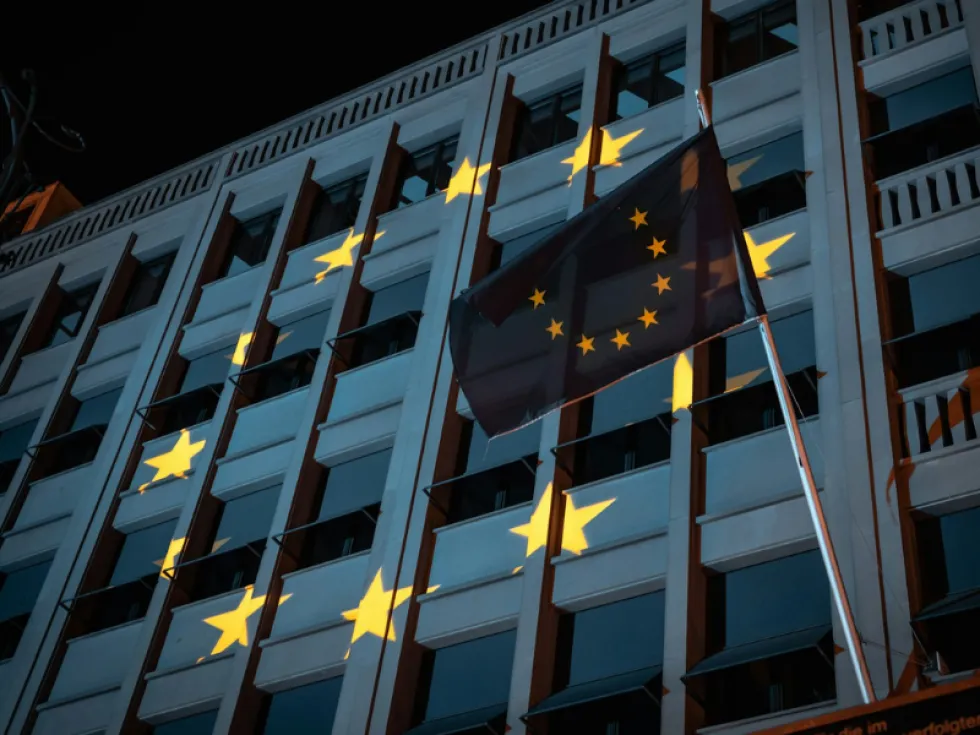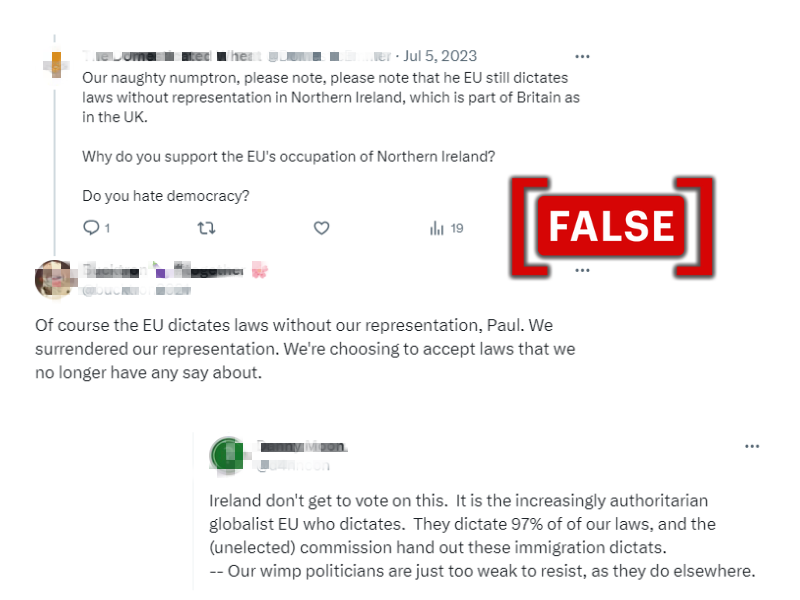By: Siri Christiansen
May 22 2024
 (Source: Maximalfocus/Unsplash)
(Source: Maximalfocus/Unsplash)
In late April 2024, a major Swedish news site announced that a new EU law on waste management had made the burning of garden waste in your private backyard — a popular Spring tradition in Sweden — illegal. Local papers quickly picked up the story, and widespread outrage soon erupted.
"Is this just a new way of oppressing us?" a TikTok user said. "What's the next step, you're not allowed to barbecue because you plan on cooking meat?"
"We obviously think that this type of superintendence from the EU does not belong in our country," an EU MEP candidate for the Swedish right-wing party declared on X. "Vote for the Swedish Democrats on June 9 if you want to take power back from the EU and back to Sweden's gardens."
However, the EU hadn't imposed the ban. In fact, the EU directive on waste and repealing doesn't say anything about how member state citizens should dispose of garden twigs, or any other waste for that matter. As with all EU directives, it's up to each member state government to decide how it should be transposed into national law. The garden waste burn ban was implemented by the Swedish government and not by the EU.
It is one of several cases of misdirected anger against a supposed "Brussels diktat." Commentators on X quickly drew parallels to the Brexit debate and how it was fueled by articles about ridiculous EU laws – bans on bagpipes or bendy bananas – that were no more than myths.
 Screenshots of U.K. headlines about fake EU regulations. (Source: The Guardian /Composite by Logically Facts)
Screenshots of U.K. headlines about fake EU regulations. (Source: The Guardian /Composite by Logically Facts)The perception that the EU dictates its member states is so common that Slovak and German authorities have tried to address it on their websites, and it has become more pronounced in the lead-up to the European Parliament election as far-right politicians seek to capitalize on public discontent.
"We no longer decide over our laws, our taxes, our borders, our forest, what we can do on the internet, who should be able to live in Sweden, how to heat our homes, who should be allowed to have a bank account, what cars we can drive," an independent "Swexit" EU candidate said in a viral TikTok video.
This isn't true, either.
"Even if some parts of the legislation take place within the EU system, Swedes have the opportunity to influence these via the European Parliament or the Council of Ministers," Magnus Blomgren, associate professor at the Department of Political Science at Umeå Universitet, told Logically Facts. "As far as taxes are concerned, this is an entirely national issue. As for borders and refugees, a migration pact has just been agreed, as requested during the refugee crisis in 2015."

Social media posts about the EU. (Source: X (archived here, here)/Screenshot/Modified by Logically Facts)
The fear over an extreme "Europeanization" of national legislation – meaning that a disproportionate number of national laws are shaped by policymaking at the EU level – hinges on a misrepresented quote by former President of the EU Commission, Jacques Delors.
During a speech at the European Parliament on July 6, 1986, Delors speculated that "in ten years, 80 percent of the legislation related to economics, maybe also to taxes and social affairs, will be of Community origin." In 1993, when a complainant went before the German Constitutional Court to argue that the Maastricht Treaty would deplete Germany of authority, Delors' speculation was repeated – this time, as a fact. The claimant referred to Delors speech as an "assessment" that showed that "already now, almost 80 percent of all legislation in the field of economic law [...] is determined by Community law." According to Annette Elisabeth Toeller, professor for Public Policy at the FernUniversitaet in Hagen, Germany, similar numbers have appeared in Austria and the Netherlands over the years – often by politicians seeking to overstate the influence of the EU over member states' autonomy.
In actual studies on the shares of Europeanized national laws in different EU countries, the figures are significantly smaller: just 10.6 percent of Austria's national legislation, 15.5 percent of Britain's, and 39.1 percent of Germany's. A French study from 2009 found the degree of EU influence to be between 20 to 25 percent. An investigation by the Swedish daily Dagens Nyheter suggests that, on average, 37 percent of all Swedish legislation implemented between 2000 and 2018 originated from EU decisions.
More importantly, counting a certain number of national laws based on or referencing EU directives is not enough to adequately measure EU influence.
"It's not as if all of these laws have been decided by the EU, it just means they originate from there," Markus Johansson, deputy director at The Centre for European Research at the University of Gothenburg, told Logically Facts. "For many EU directives, it is up to the member states to decide how to implement them and adapt the legislation accordingly. There is room for negotiation and interpretation regarding how the legislation should be applied in practice, and the same goes for many regulations, too," he added.
"It is important to point out that the EU does not have an implementation responsibility," Anamaria Dutceac Segesten, a lecturer in European Studies at Lund University, told Logically Facts. "It's not a 'one-size-fits-all' approach. (...) As the EU has a subsidiary principle, implementation takes place at the level closest to the citizen and the level affected by the decision – municipalities, regions, nations, or the whole EU."
Furthermore, since member states have direct and indirect representation in the EU, they have a significant influence over EU decisions, directives, and legislations before these reach national law.
"The classic Eurosceptic argument is that the EU is undemocratic and acts as a level on top of the national level – like the relationship between regional and national [governance]. But it's not the same thing. The EU is not a state. There are several bodies where national governments have to approve decisions," Dutceac Segesten said.
EU citizens have direct representation in the European Parliament, as citizens vote for candidates who form ideological groupings. The Parliament has 705 members, and the number of MEPs from each country is proportionate to the size of its population. In the Parliament, these directly elected representatives make decisions on EU laws, approve the EU budget, and nominate and elect the President of the European Commission.
In addition, EU citizens also have indirect representation via their democratically elected governments in the European Council, which comprises the heads of member state governments. The European Council — in other words, the elected leaders of EU countries — sets the overall policy direction and main priorities for the EU. The governments of each EU country are also represented in the European Commission, to which each member state nominates a commissary that has to be approved by the European Parliament.
These commissaries represent the common interests of the EU and are assigned a specific policy area in the Commission. Even though the Commission is the executive body of the EU and has the power to propose new laws, consultation with national parliaments, governments, interest groups, experts, and the general public happens even before the proposal is finished and sent to the European Parliament and the Council.
A video from the European Parliament Multimedia Centre on how voting influences EU institutions. (Source: European Parliament Multimedia Centre)
"Sweden can influence legislation through the government in the European Council. Swedish MEPs can exert influence in the European Parliament. The vast majority of laws adopted are changed from the proposal put forward by the Commission," Blomgren emphasized.
He highlighted the EU Nature Restoration law as an example of a highly ambitious proposal by the Commission that was watered down through negotiations in the European Parliament. As of March 25, the proposal still has not passed the Council as not enough member state representatives would vote in favor. A proposal can't be passed unless 55 percent of member states, representing 65 percent of the EU population, approve it.
"To claim that the EU makes decisions that are detached from its citizens is therefore incorrect," Dutceac Segesten said.
"What is the EU, if not the member states that make up the EU apparatus?" Johansson said. "Stating that the EU 'wants' something makes it seem as if the EU is separate from us – that we aren't part of the EU, and simply have to comply. But we are part of the EU, and we can impact its decisions."
If you have a nationalist worldview, the national state appears best as a stand-alone actor involved in temporary alliances. Sweden would then seem disadvantaged by being in cooperative organizations," Dutceac Segesten said. "The problem is that few of these claims are based on statistical data on, for example, voting patterns in the Parliament and Council, or the implementation of various directives."
Misinformation about the EU feeds into a perception of the EU as a far-away, distant phenomenon that few people understand. Just 14 percent of EU citizens responding to the European Parliament's Spring 2024 Eurobarometer were able to correctly identify the period when the European election is being held – in Spain, just 2 percent of respondents got it right.
"Whenever there is a general lack of knowledge, there is potential for manipulation," Dutceac Segesten said. "Because political parties do not invest their resources [into the EU election campaign], there is not enough information for citizens – they are left to find it on their own, but many citizens often do not know exactly how decision-making processes work on a national level."
"There is very little discussion of EU-related issues between elections," Blomgren added. "This means that people do not perceive what issues are at stake and what options are available. This in turn leads to further alienation from power. Then, once decisions become reality, people feel they have not had the opportunity to influence them. We solve this by having the parties start competing on EU issues in the same way as they do in national politics."